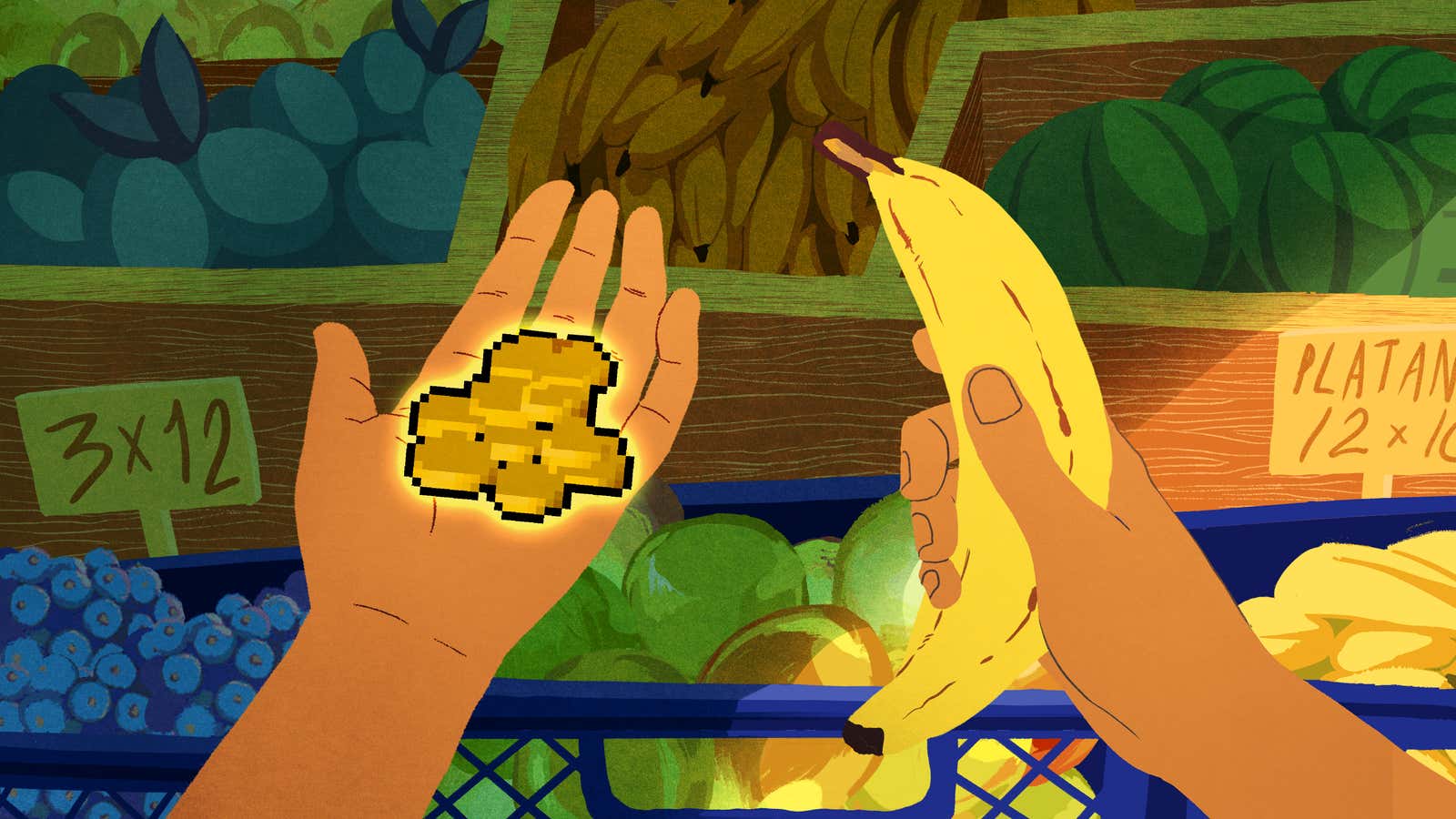Venezuela is in the midst of an economic collapse. What was once the wealthiest major economy in Latin America is now suffering from shortages of essential goods like food and electricity, as well as spikes in crime and unemployment. To put dinner on the table, many are turning to unconventional jobs. Like gold farming. In an MMO from 2001.
If you even remember Runescape, a fantasy-themed massively multiplayer online role-playing game published by Jagex, it’s likely as “that crummy-looking game you played for a few months 10 years ago.” But it runs just fine on hardware that hasn’t been called state-of-the-art in more than a decade, meaning that it’s accessible to many in Venezuela who are strapped for cash, and its gold still fetches a pretty real-world penny. Gold farming, generally speaking, is the practice of grinding in a game specifically for the purpose of generating in-game currency or other content to be exchanged for real-world money. While it’s prohibited by Runescape’s rules, it’s also a relatively safe and comfortable job in a place where one’s safety is by no means guaranteed.
“I gold farm mostly for the raw benefits of it,” a player who goes by the handle Fhynal told me via DMs. “I don’t have to go out. That may sound strange, but we live with a lot of crime. If you want to go out, you have to use a bus, [which increases your] propensity to be robbed.”
Fhynal said he earns around 200,000-250,000 Venezuelan Bolivares, or approximately $15-$20, per week. This adds up to “double, sometimes triple” the average monthly salary in Venezuela, he said, even factoring in the occasional week that he takes off to keep a “low profile” and avoid getting caught.
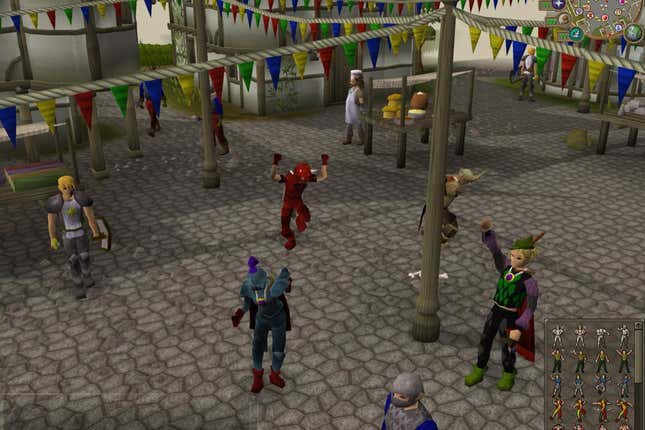
For Fhynal, it’s just enough to help make ends meet for himself and his mother, as long as inflation doesn’t hurl food prices into the stratosphere.
“The truth is, there are people who, if they did not play, they could not eat and would die of hunger,” a former Runescape farmer who wished to remain anonymous told me on Facebook. “I have friends who play daily, and if they do not play, they do not eat that day.”
More and more Venezuelans are growing wise to the benefits of gold farming. Earlier this year, a local newspaper published an article on the process. Runescape players, meanwhile, continually report seeing dozens of gold farmers crowding up locations like the Blast Mine and East Dragons. This has resulted in growing tensions, with players doing everything from regularly demanding that developer Jagex ban all gold farmers to publishing a guide that helps other players more effectively hunt, kill, and insult farmers.
The author of the guide, which received 1,613 upvotes and 769 comments on the Old-School Runescape subreddit, claimed they did it facetiously, but it still divided a portion of Runescape 2007’s community along very sharp lines.
“I never thought I’d see a guide on how to efficiently kill poor people,” read one response. “Literal humanitarian crisis going on there. People starving to death. [The guide’s author] thinks it’s a good plan to not only kill them but to taunt them in their own language and [teabag] them on return… That’s some pretty asshole shit right there,” read another.
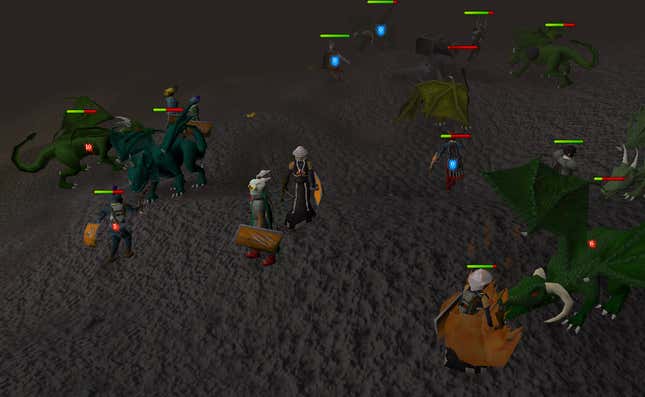
Others, however, argued that since gold farmers are breaking the rules and hurting the game’s economy, they deserve whatever’s coming to them, and didn’t seem to have much sympathy for their situation. “This fucks the game’s economy and breaks the rules,” said one player responding to the guide. “I understand that Venezuela is fucked up, but jesus shit dude, there are better things to do with your goddamn time than farming gold. Things like learning something new or anything that can help your country get out of the bad situation.”
There was also a third variety of response: people saying that they followed the guide’s advice and went hunting for “Pablos,” as some took to calling Venezuelan players. “They actually get pissed if you keep killing them and cursing at them in Spanish, [and] they’ll try and gang up on you,” said a person who claimed they’d been at it for a couple hours. “Free loot + fun.”
The guide wasn’t the first time Runescape players had expressed anti-Venezuelan sentiment, but it was easily the most vicious example of it.
“I was expecting people to empathize and for once realize that games might just be a way to change people’s lives,” said Yasser, a former Runescape farmer who moved to the US a year ago, in a DM. Instead, he said, “the whole thing just made feel rage. Not your normal ‘political debate’ kind of rage but something more personal, especially because my family is still [in Venezuela], and I know what starving feels like. To see these guys that had the luck to be born on the right soil dehumanize Venezuelans, man, that tore me.”
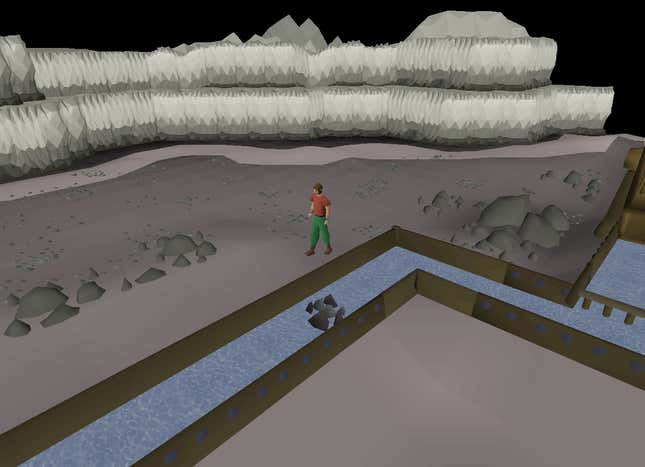
Venezuelan gold farmers aren’t like the massive armies of bots unleashed on Runescape and other games, sometimes by gold farming corporations. Instead, they often spend entire days and weeks farming manually, and they generally work alone, rather than as part of a company. The way many of them play—up to the point where they sell the gold— does not violate rules as directly as, say, using a bot.
“Runescape has always been dealing with enormous gold farming companies in China and other parts of the world,” a Venezuelan player who goes by the handle Glow_Party claimed in a DM, “so [what] I can extrapolate from this is that the community seized the moment to blame [one] set of individuals [even though] they know these people will not make a difference in the market for Runescape gold.”
Moreover, Runescape is a game that’s always been aimed at a younger audience, and young people tend to have issues with things like empathy and perspective. “Kids play this game, and kids like to troll,” said Glow_Party. “I wouldn’t take some things these users say seriously, because I can tell some of them are kids with little life experience.”
Yasser believes there’s also a cognitive disconnect at play. “I’m sure that if you [told] people that, somehow, you can help people affected by [hurricanes] Harvey and Irma just by playing Runescape, they would do it,” he said. “But if you tell them that by killing a player, they will be harming a family in a small country that no one cares about, they will not mind killing that player.”
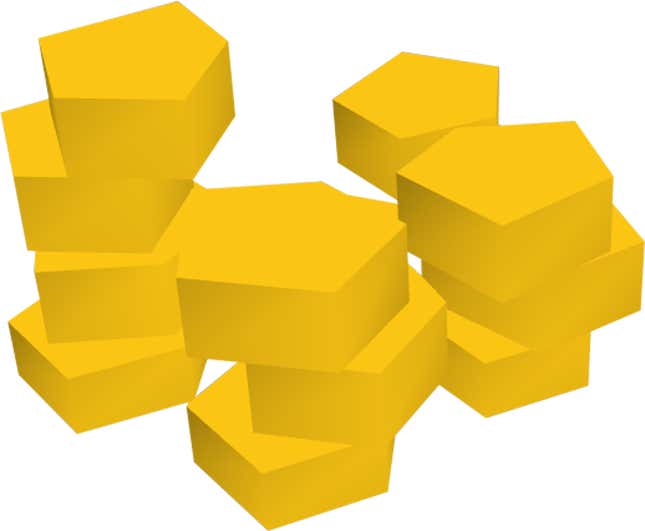
The situation puts Runescape developer Jagex in a tricky spot, but ultimately, it has to watch out for the health of its game. “Gold farmers, wherever they are from, do mess up an economy and left unchecked can destroy it,” senior product manager Mathew Kemp told me in an email. “It is very hard to put to a definitive figure on what impact they have, but we can see changes in the player price of items in game when gold farmers focus on specific content.”
He pointed to an item called “Wine of Zamorak,” which allows players to gain experience more quickly. Not only, he explained, has the average price of the item plummeted from nearly 3,000 gold to 1,500 gold over the course of this year, but there’s a knock-on effect: Wine of Zamorak’s sudden surge in availability makes the game significantly easier. “The challenge of old-school Runescape is something that is very important to our players,” Kemp added. He said that Jagex bans “around 10,000” gold farming-related accounts daily.
The Venezuelan gold farmers I spoke to are well aware that they’re in a precarious line of work, and they don’t expect people to play knight-in-shining-armor when players decide to kick them down. It’s an occupational hazard, and given the alternative, they’re willing to take their chances.
“I know I’m not doing right by those who work hard for their game,” said Fhynal. “When you don’t know what the future promises, and you fear for your life and the lives of those you [care about], you kind of don’t care about people’s opinions.”
